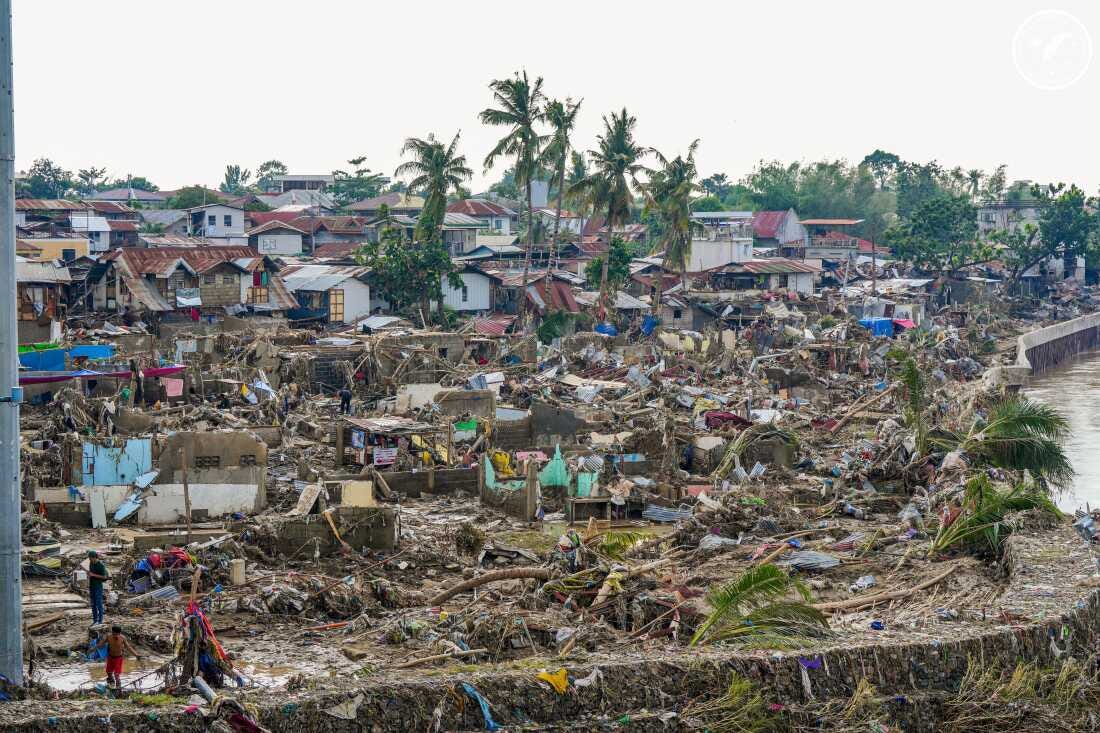The Pacific’s Prophecy: Why Every Typhoon Carries a Warning for the Complacent
Witnessing the relentless battering of the Philippines by Super Typhoon Fung-wong, I find myself grappling with a profound question: What does this recurring devastation truly tell us about ourselves? This isn’t just about weather; it’s a mirror reflecting our global conscience, our shared vulnerabilities, and the stark inequalities that define our age. Join me in confronting this urgent truth.
A Hurricane of Questions
Just days ago, Super Typhoon Fung-wong — or Uwan, as it’s known locally — slammed into the Philippines, unleashing chaos and adding to the devastation left by Typhoon Kalmaegi. My heart sinks every time I see these headlines, another storm, another country already reeling, facing down unthinkable odds. It’s not just the sheer power of the wind and rain that chills me; it’s what these recurring disasters reveal about our world, and about us, as a collective.
The Unseen Tides of Inequality
These aren’t just natural disasters; they’re amplifiers of existing inequalities. The Philippines, like many developing nations, bears the brunt of a climate crisis it contributed little to creating. It’s a stark, undeniable truth that those with the least resources often face the most brutal consequences. This isn’t just bad luck; it’s a systemic injustice. As the philosopher Hannah Arendt once mused on collective thoughtlessness:
The greatest evil is not radical, but has no depth, no demonism. It is thought-defying because it is so shallow.
– Hannah Arendt
Are we, in our comfortable corners of the world, guilty of this shallow thoughtlessness when it comes to climate justice?
Our Collective Blindness
It’s easy for many of us in wealthier nations to view these events as distant, unfortunate occurrences. We might donate a few dollars, share a news article, and then move on with our day. But this distance is an illusion. Our consumption patterns, our industrial emissions, and our political inertia are directly contributing to the increasing ferocity of these storms. We are shielded, for now, by geography and privilege, but this shield fosters a dangerous form of willful ignorance. James Baldwin, ever the truth-teller, warned us about this:
Ignorance, allied with power, is the most ferocious enemy justice can have.
– James Baldwin
His words echo with chilling relevance in the context of global climate policy.
A Moral Reckoning for an Urgent Age
The prophecies carried by the Pacific’s typhoons are clear: we are facing an existential crisis demanding a radical re-evaluation of our priorities. This is not just an environmental issue; it is a profound moral challenge that tests the limits of our empathy and our capacity for collective action. The ongoing devastation in vulnerable nations is a mirror reflecting the moral deficit of global complacency. We can no longer afford the luxury of detachment. Our shared humanity demands more.
Go Deeper
Step beyond the surface. Unlock The Third Citizen’s full library of deep guides and frameworks — now with 10% off the annual plan for new members.
Where Do We Go From Here?
So, what do we do? We must demand greater accountability from our leaders, advocate for equitable climate policies, and critically examine our own roles in this global crisis. It means recognizing that the fate of the Philippines is inextricably linked to our own. It means moving beyond mere sympathy to genuine solidarity, understanding that the storms threatening them today may very well be knocking on our own doors tomorrow. The time for passive observation is long past; the time for active engagement is now.



